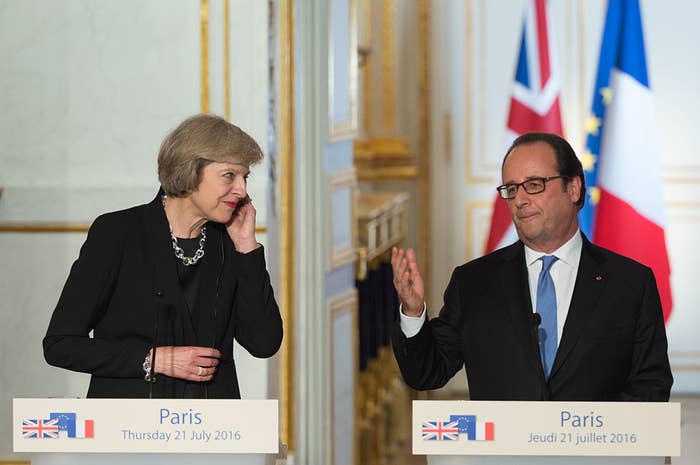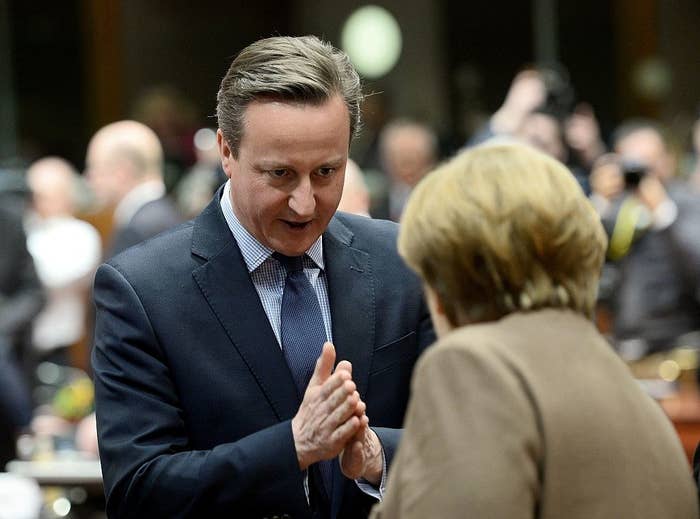
Senior French officials have dismissed reports that EU governments are considering giving the UK a seven-year exemption from freedom-of-movement rules as part of a deal to keep the country in the single market following Brexit.
The report, which was first published by The Observer, said the “emergency brake” plan had been discussed by UK and European diplomats, including the French, during talks between French president François Hollande and UK prime minister Theresa May in Paris last week. The report claimed that while it was “very early days”, the proposal was “certainly one of the ideas now on the table”.
However, two high-level French sources told BuzzFeed News they were unaware of such talks. One official with direct knowledge of last week’s meeting between the two countries’ leaders said they never heard the emergency brake mentioned in discussions between officials.
A second source said there was no reference to it in the debrief of the leaders’ talks circulated to French officials. While emphasising that they didn’t know the exact details of what every official might be working on, the source said the only clear point to emerge in meetings was that the British “candidly and convincingly tell us that they are absolutely not ready yet, and need some time to define the direction the UK will want to go”.
Both Hollande and German chancellor Angela Merkel, who also met May last week, said at press conferences after their respective meetings with May that they were prepared to wait for the UK to put its house in order before it invokes Article 50, the formal procedure to leave the EU.
But both countries have also repeatedly stated that there can be no negotiations, formal or informal, over the terms of the UK exit before that point. May has said Britain will not trigger Article 50 before the end of the year.
This is not the first time the idea of a brake on freedom of movement has been floated by the UK.

In 2014, it was reported to be one of the concessions sought by then PM David Cameron as he tried to negotiate a new deal for Britain. The alternative was an outright cap on migrants from the EU.
But both proposals were reportedly opposed by Merkel. According to the German magazine Der Spiegel, Merkel told Cameron that any attempt to restrict immigration by weakening the principle of freedom of movement would result in Germany withdrawing support for efforts to keep Britain in the EU.
It would be an awkward sell for EU leaders to give the UK a emergency brake after it leaves the EU when it was denied one while still a full member. The EU, and all 27 governments, have been adamant that the single market cannot be decoupled from the four freedoms of movement – of goods, services, people, and capital – and that Britain will not be allowed to cherry-pick the bits of the EU it likes.
The emergency brake suggestion has already been directly dismissed by the European Commission.
European Commission says reports of a seven-year brake on free movement for an EEA UK is "wishful thinking"
European Commission president Jean-Claude Juncker said Britain will have to accept EU rules including free movement “without exception or nuance” if it wants to retain full access to the single market. Guy Verhofstadt, leader of the Liberals and Democrats in the European parliament, said MEPs would block any such deal.
